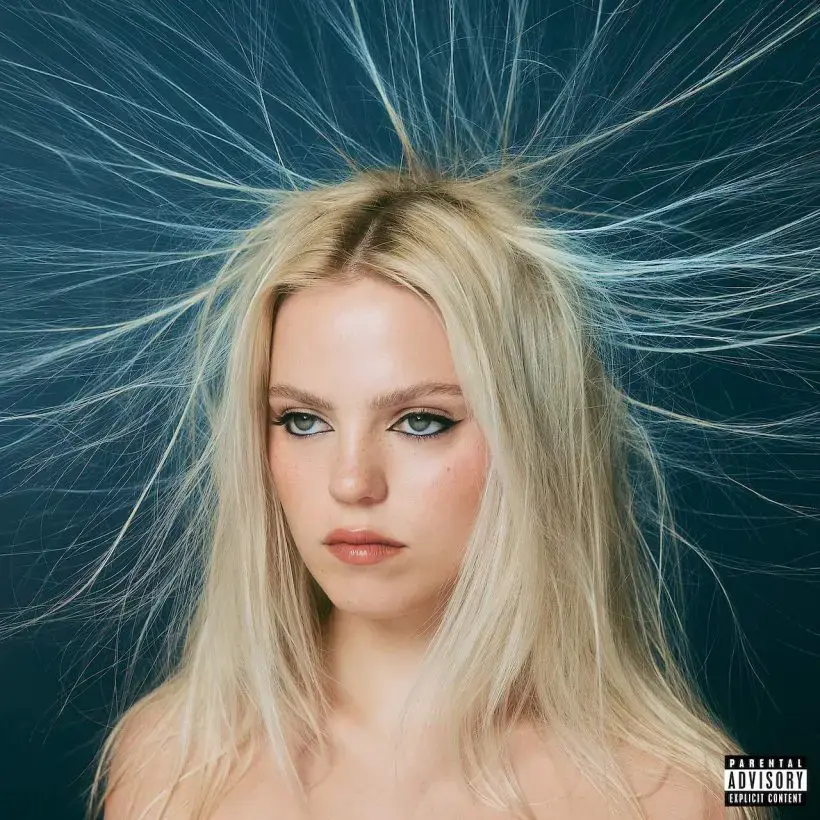Leah Mason has found her place in pop music with her highly-anticipated debut album, HEXED, released on August 9th. Following her EP Honeydew & Hennessy, Leah emerged as one of Nashville’s most exciting young stars and was named an “undeniable talent” by People Magazine. Now HEXED represents Leah as self-assured and unfiltered– at 24, she has been navigating intense emotions, significant life choices, first loves, heartbreaks, evolving friendships, and self-discovery. For fans of Halsey and Holly Humberstone, Leah Mason captures a mix of relatable songs that range from angst-filled anthems to poignant reflections on love and loss.
Stand-out tracks: ‘HEXED’ ‘Dime Bag’ ‘YOUR BOYFRIEND SUCKS’
My favorites: ‘Insomnia’ ‘Ball’ ‘1st Prize Money’

From its catchy hook to its witchy imagery, the title track ‘HEXED’ is an immediate attention-grabber. It’s a perfectly edgy anthem about falling back in with an ex, as Leah repeatedly calls out: "One time is a fluke / Twice is just bad luck / But three times is a pattern / And I’m sitting here like / F*ck!" ‘Kissing Friends’ features a gritty bassline that complements its messy yet relatable storyline, culminating in Mason's explosive outburst: "Kissing friends is a bad idea!" ‘Klepto’ is a quintessential I-hate-my-ex anthem, showcasing perfectly balanced synth-pop production that rounds out Leah on a three-for-three run of pop hits.
After three power-packed tracks to create the pull into HEXED, ‘Dime Bag’ is the synthy-piano ballad that truly puts Leah Mason’s artistry at the forefront. Blown out for the big moments of frustration and pared back for moments of emotional vulnerability, the track culminates in the wickedly blasé: “You know this breakup is a crime/And I lied about the liquor that I drank last night.”
‘Insomnia’ and ‘YOUR BOYFRIEND SUCKS’ taps into a nostalgic 2010s-pop production style, with the former sounding like it would be at home on Tove Lo’s Queen of the Clouds and the latter on Charli XCX’s Sucker. Leah’s vocals never shine brighter than when she soars from the bridge of ‘Insomnia’ into its final chorus: “I thought I’d be up until my deathbed/But I can finally, I can finally rest/With your body next to mine.” Don’t be fooled by her hopeless romantic demeanor though, it doesn’t last long; she’s ready to throw punches as she belts out the chorus of ‘YOUR BOYFRIEND SUCKS’: “Girl run cause your boyfriend sucks/Say the word I’ll do the dirty work/Throw his shit into a pile with a smile/Watch it burn.”
The back half of HEXED holds the deeper cuts of the album, with ‘Everything’s Gonna Be Alright,’ ‘Midas Touch,’ and ‘Spirits.’ The ‘Interlude’ interpolates ‘Spirits,’ leading into the heaviest pop hitters to close out the album. ‘Ball’ and ‘Prize Money’ are Mason at her most cutting. She nonchalantly blames the end of her relationship on the fate of a Magic 8 Ball: “Do I take my vengeance/Feeling a little hellish/Need the go ahead to get it/Crossing my fingers for “definitely yes”/And if it says “no” then I’m gonna shake it again” and hits one last punch by calling out the paradox of life in the spotlight: “I kill myself trying to climb the gate/They dangle the keys right in my face/And tell me ‘No’/But I know if I had a faucet made of gold/Paparazzi in my face/Face in Centerfold/Star of Rolling Stone/They would want something from me.”
With HEXED, Leah Mason firmly establishes herself as a powerhouse in contemporary pop. She delivers an album that is both intensely personal and universally resonant, cementing her place as a compelling and relatable voice that cannot be ignored.
AM I OBSESSED?

.png)





